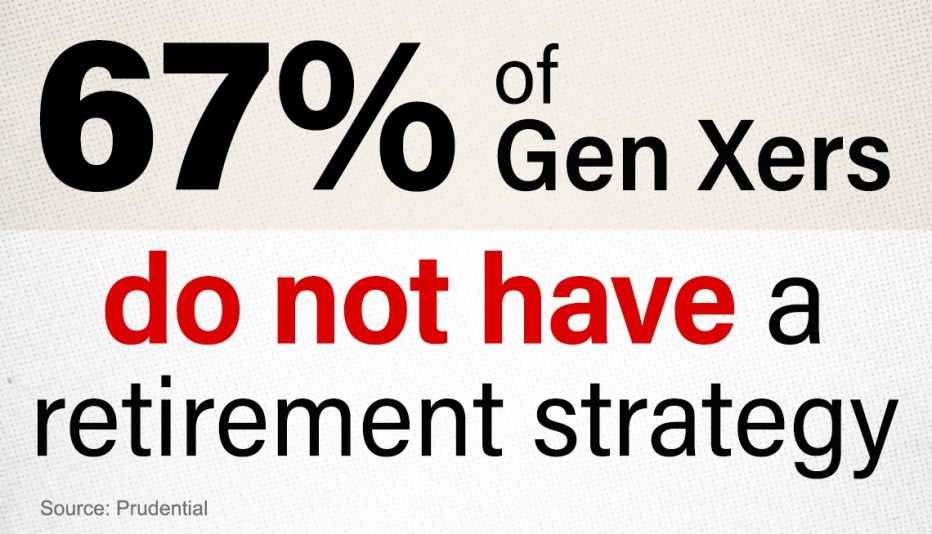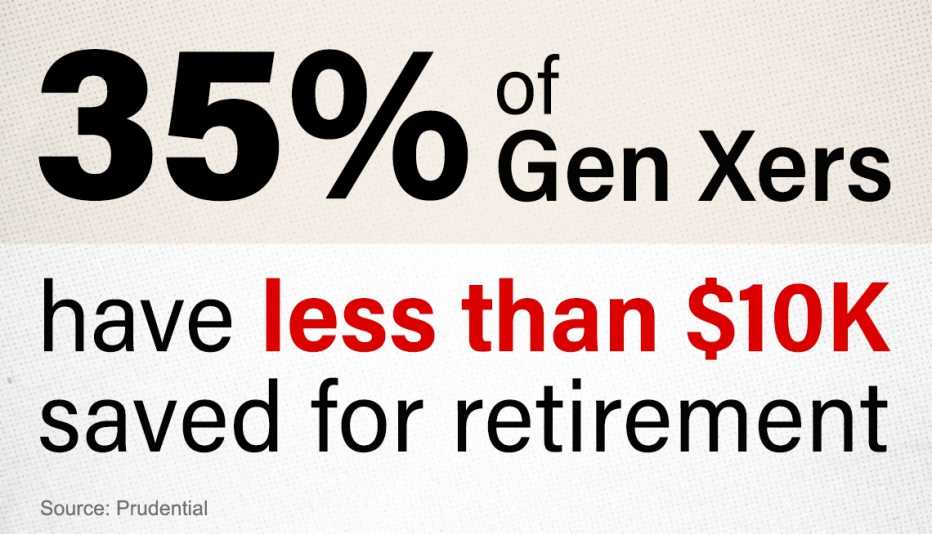AARP Hearing Center


For years, Mike Cundall Jr. thought he was on the proper path to retirement.
A professor of philosophy at North Carolina A&T University, Cundall, 49, and his wife, Amy Werner, 48, did everything right. They started saving for retirement when they entered the workforce and faithfully put money from every paycheck into 401(k) plans and Roth IRAs. Their goal: to save enough to have a monthly income of $5,000 in retirement.
But now Cundall is beginning to feel apprehensive. He wonders whether he’ll be able to reach that $5,000-a-month goal and, if he does, whether it will be enough.


One reason for the Greensboro, North Carolina, resident’s anxiety: the unpredictability of the stock market. When the financial crisis hit in 2008, he recalls, “our savings essentially got halved in a matter of weeks.”
Then there’s inflation and rising health care costs. Financial advisers have counseled the couple to save more, but the costs of raising their three children — now 22, 20 and 13 — have made that impossible, Cundall says.
“All this has led me to believe that no matter how much we’ve saved, we’re not going to be able to retire and simply enjoy the golden years,” he says.
Cundall’s pessimism is widely shared among his peers in Generation X — or “Generation anXious,” as a recent Northwestern Mutual report dubbed them.
The insurance and financial planning firm’s 2023 Planning & Progress Study found Xers, the cohort born from 1965 through 1980, to be the only generation in which a majority — 55 percent — believe they won’t be financially prepared for retirement.


According to the report, based on a February-March Harris Poll survey, Gen Xers are less likely than the general adult population to believe they have had or will have a successful career or that they will achieve long-term financial security. They are considerably more likely than boomers to predict they will outlive their savings, and on a 10-point scale, they rate their sense of financial security at 5.6, markedly lower than other generations.
Those worries appear to be well founded. Thirty-five percent of the Gen Xers surveyed by Prudential in March and April reported having less than $10,000 in retirement savings, and 18 percent have nothing at all saved for retirement.
“The anxiety is real, and I think it’s probably somewhat well placed,” says Brian Ream, a member of Gen X and managing principal at accounting and wealth advisory firm CliftonLarsonAllen in New Bedford, Massachusetts. In many respects, he says, “Gen X is woefully unprepared for the traditional sense of retirement.”


America’s ‘middle child’
To some degree, Gen X’s anxiety has a straightforward explanation: Its members — numbering about 65 million, nearly 20 percent of the U.S. population — now range in age from 43 to 58, and retirement is no longer some event in the distant future.
But many reasons for their “pretirement” jitters are more complicated, rooted in past collective experiences and present economic challenges.
Growing up, Gen Xers were referred to as latchkey kids because, with both parents working, many came home from school to an empty house. Falling between two larger and more attention-getting age groups, boomers and millennials, they’d come to be called the forgotten generation — or, as a Pew Research Center study memorably put it, “America’s neglected ‘middle child.’ ”
“In my experience with clients, Gen Xers have been spending a lot of time trying to find identity,” says Thomas Jensen, a Portland, Oregon–based wealth management adviser with Northwestern Mutual. Now they are trying to figure out how retirement might change their identity.






































































More From AARP
Why Americans Are So Pessimistic About Retirement
Inflation, state of Social Security among fear factors4 Reasons Not to Cash Out 401(k) When You Leave a Job
2 in 5 departing workers drain retirement accountsDo You Really Need to Save $1 Million to Retire?
Base savings goal on how, and where, you want to live